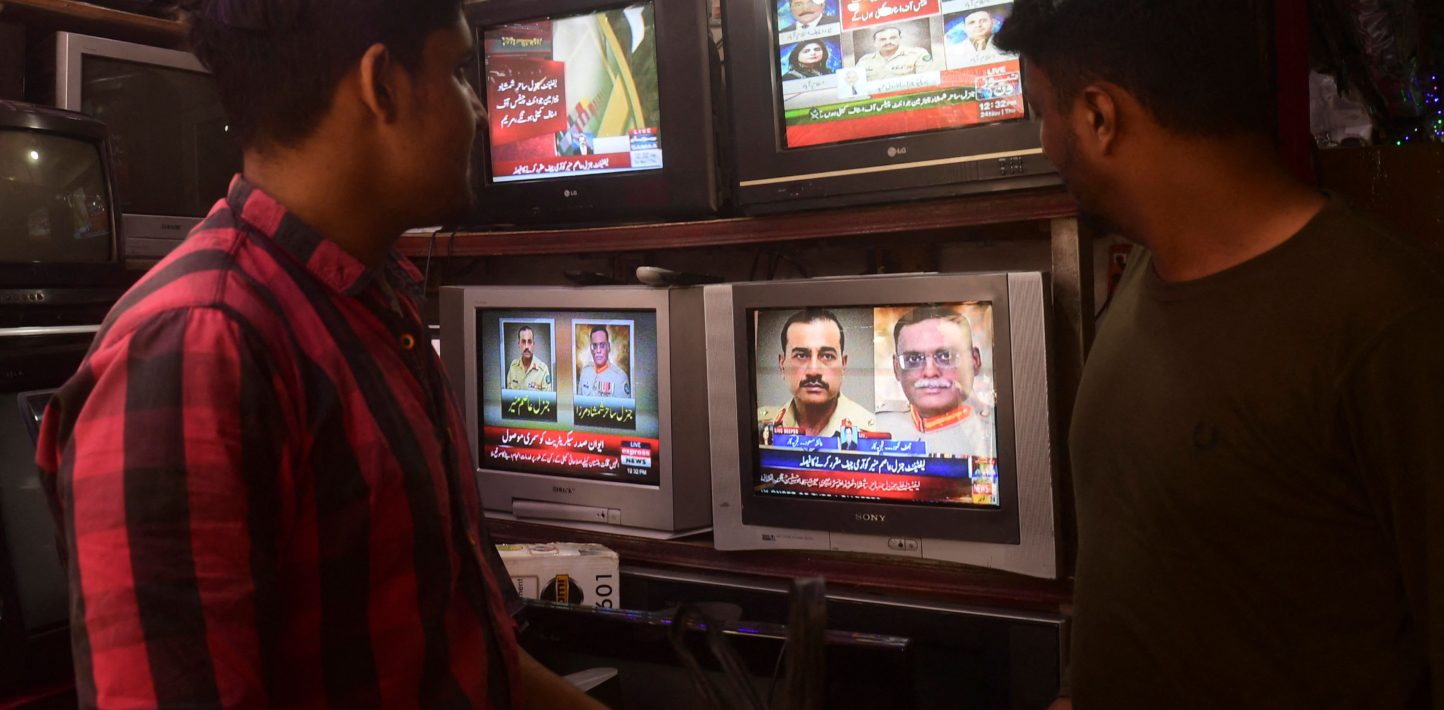Responding to the press release published yesterday by the Inter Services Public Relations (ISPR) indicating the Pakistan military’s intention to bring ‘arsonists’ during last week’s violent protests to trial under the Pakistan Army Act and Official Secret Act, Dinushika Dissanayake, Deputy Regional Director for South Asia at Amnesty International, said:
“It is alarming to note that the Pakistani Army has stated its intention to try civilians under military laws, possibly in military courts. Trying civilians in military courts is contrary to international law.
Trying civilians in military courts is contrary to international law.
Dinushika Dissanayake, Deputy Regional Director for South Asia, Amnesty International
“Article 14 of the International Covenant on Civil and Political Rights (ICCPR), which Pakistan has ratified, guarantees the right to a trial before a ‘competent, independent, and impartial tribunal established by law.’ Military courts in Pakistan are not independent courts and are specialized, purely functional, and designed to maintain discipline within the armed forces. Amnesty International has documented a catalogue of human right violations stemming from trying civilians in military courts in Pakistan, including flagrant disregard for due process, lack of transparency, coerced confessions, and executions after grossly unfair trials. Therefore, any indication that the trial of civilians could be held in military courts is incompatible with Pakistan’s obligations under international human rights law.
This is purely an intimidation tactic, designed to crack down on dissent by exercising fear of an institution that has never been held to account for its overreach.
Dinushika Dissanayake
“This is purely an intimidation tactic, designed to crack down on dissent by exercising fear of an institution that has never been held to account for its overreach. There are several provisions under ordinary criminal laws that can be used to prosecute vandalism and destruction of public property. The right to a fair trial, guaranteed by Pakistan’s constitution, is severely undermined by this move and cannot be justified. It must be struck down immediately.”
Background
On 8 May 2023, former prime minister Imran Khan was arrested and his supporters held nationwide protests, during which there have been incidents of violence. Some groups ‘breached the military headquarters while others set fire to a military commander’s official residence’. At least eight people have died and thousands have been arrested as per police reports in media, including other political leaders of Imran Khan’s Tehreek-i-Insaf party.
Pakistan’s army described 9 May as a “dark day” and warned protesters of “severe retaliation” against further attacks on military and state properties.
Pakistan is the only country in South Asia to allow military courts to try civilians for non-military offences, including offences related to terrorism.


